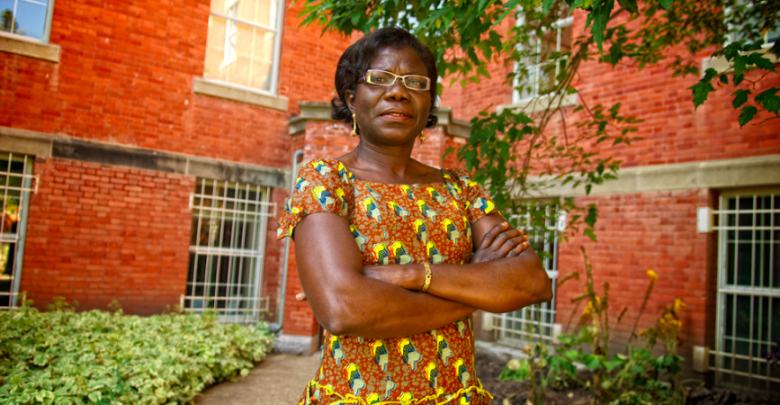 Oumar Salifou
Oumar SalifouPhilomina Okeke-Ihejirika is a professor in the department of women’s and gender studies at the University of Alberta. Originally doing her studies on economics at the University of Ibadan, Okeke-Ihejirika later changed her focus to feminism and gender inequality while completing her PhD. She also does work outside of Canada, with organizations such as the Council for the Development of Social Science Research in Africa. The Gateway spoke with her about how she first became interested in women’s and genders studies, as well as the importance of higher education. This interview has been edited for length and clarity.
The Gateway: Could you share a little bit about your background?
Okeke-Ihejirika: I am from Nigeria. I came to Canada in the late 80s and I finished my PhD at Dalhousie University. I ended up at the U of A and I have been at the department of women’s and gender studies for 21 years.
How did you first become involved with women’s and gender studies?
My original area of interest was economics… I didn’t know what feminism was, but as I began to interact with [feminist scholars], I learned a lot about gender inequality. I think I had some sense that generally, it is a man’s world to some extent.
One day my supervisor said to me “You are very passionate about the subject, very angry about the way women are treated and for the fact that the utility of women’s education is not paid as the same rank as a man’s.”
It didn’t occur to me that, coming from a culture where formal education is a colonial gift, you kind of see [education] as something you study to make a living, you don’t see it as a part of you. I began to understand what education was meant to be for me. It supposed to develop my mind, it is not the colonial thing of literary education. So, I changed to women’s studies.
How has gender and higher education in Africa affected people?
Having a higher education for a woman is a very large access to a better life. If you don’t have higher education, you are not likely to get a good job and be doomed to a life of poverty. I came from a very poor family. If I didn’t have higher education, I would probably be selling tomatoes in some market.
Higher education is also likely to give a woman a better life. For one thing, it stops you from having too many children. If you don’t have higher education, you are likely to marry early. Not to say that it may not affect someone who has higher education. But at least you have some economic cushion to decide how far you are to go along that road. You can’t defy culture if you have nothing. If you have some biceps, you can defy culture.
Also, having higher education is a way of developing your mind, and that is where you can come at war with culture. You may begin to question something and understand culture as socially constructed, and you may begin to make different choices. Higher education is a good thing for both men and women but because women are often more vulnerable in any culture it is likely to improve women’s conditions of life.
What have you done to empower women?
I deal a lot with youth and talk to them about identity because at this age they may not value identity much, especially for black youth. I talk to them about the privileges they have, especially in university. There are a lot of black kids who would not make it here. Just being at the U of A is a privilege; use it well. I use myself as an example. Yes, I have experienced racism at the U of A many times. Initially I may have been disappointed but eventually, I strengthen myself, it is a reminder that you have a place here.
What does it mean for you to be involved in many community organizations that specifically discuss women?
I love touching people’s lives. I love helping people rethink who they are. I love presenting different realities to people. I love the fact people can make choices and conversations that shows that culture is not stagnant. I love conversations where people began to realize that they have agency and choices.
Most importantly, I learned a lot from the community. Sometimes we get so lost in academia, libraries and conferences, that we lose sight of the people we are studying, at least for social scientists. Having those connections to the communities is a huge knowledge basis for me because they teach me so much about human interactions… I find that doing research with the community they have never disappointed me.




